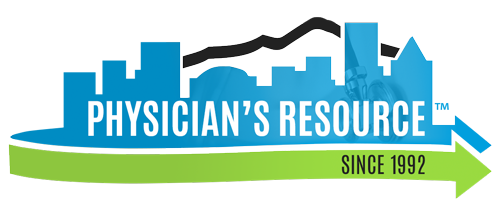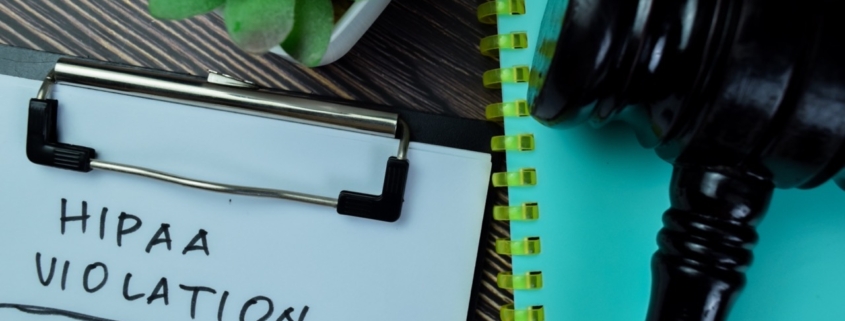Common Ways You May Be Violating HIPAA
Many companies in the healthcare industry, including you, might be violating HIPAA regulations in one way or another. If the Office for Civil Rights detects these violations during audits, you’re in for hefty penalties—both legal and financial.
HIPAA standards are challenging to follow as they evolve continuously. This makes it similarly harder to keep up with the latest violations. While you should be able to avoid these mistakes with HIPAA compliance consulting, getting to know what you might be neglecting allows you to be more proactive.
1. Lack of Proper HIPAA Training
As a covered entity, training your employees on the various standards, regulations, and policies required by HIPAA is a must. This ensures that they don’t mishandle protected health information. In fact, medical HIPAA training for your workforce isn’t just recommended—it’s mandated by the law.
2. Leaving Records Unsecured
While medical HIPAA training takes effect, there may still be cases where members of your staff fail to follow set protocols. For example, they might leave physical files lying on desktops when they should’ve been properly locked inside a secure filing cabinet.
For electronic PHI (ePHI), you should ensure that it’s secured with passwords to prevent unauthorized access, on top of file encryption. If you want to share them with relevant bodies, you are required to use encrypted channels, too.
Negligence in these technical aspects is a direct HIPAA violation.
Depending on the state where your business is located, some laws may also mandate encryption for ePHI. Make sure to check local regulations, such as the Washington HIPAA requirements, on top of the common standards to ensure you minimize the risk of violations.
3. Gossiping About Protected Health Information
Discussing PHI in person in the presence of unrelated personnel constitutes another HIPAA violation, whether unintentional or not. Unless there is collaboration for a patient’s treatment, PHI must only be shared with staff directly involved with the patient’s healthcare. Even these collaboration talks must be kept behind closed doors.
4. Being Unprepared for Cyberattacks
There’s no telling when cyberattacks, such as malicious hacking and viral invasions, will occur. Those with bad intentions can use protected information for crimes like identity theft, making it important for healthcare providers to protect against them vigorously.
Ensuring that your digital systems are always ready for such cases is another requirement of HIPAA. This falls under the technical safeguard requirements of the HIPAA Security Rule, which states how you should protect sensitive patient data.
To prevent this kind of HIPAA violation, strengthening your cybersecurity measures goes right on top. Here are a few basic ways to achieve this:
- Ensure that your digital systems and software are up-to-date.
- Always use firewalls configured to resist such attacks.
- Create hard-to-crack passwords and implement regular password changes.
- Encrypt your ePHI.
Some healthcare providers contract with expert IT firms to safeguard their ePHI. If you choose to follow suit, you must sign a business associate agreement with the service provider, which should outline how they must keep ePHI private and interact with it.
5. Third-Party PHI Disclosure
You should only discuss and share protected health information with relevant people—the patients, their doctors, their health insurance, and others as needed. Discussing it with any other party directly violates the rules and regulations set forth by HIPAA.
Staff might mistakenly share another patient’s data. While there seems to be no bad intent here, the fact is that they shared PHI with a third party. Hence, it will incur the necessary penalties.
If you need to share PHI with your business associates, they must enter into a business associate agreement (BAA) with you (as mandated by HIPAA). The BAA would clearly define the extent of permissible uses and disclosures of the information.
It’s also important to train your staff to always get clearly printed consent in case they need to share PHI other than healthcare treatment and payments, like for legal purposes. Establish clear and effective policies too, so that they don’t share PHI without the approval of the patient, even if it’s the patient’s family.
6. Improper Disposal of PHI
When it’s time to dispose of protected health information from your archive, make sure that you do it thoroughly. This way, you don’t allow those with malicious intent to restore any identifiable data about your patients. In the event that they access sensitive information, it would count as negligence on your part.
If you deal with physical PHI—documents, printed health records—make sure to have them shredded. On the other hand, you must also ensure complete deletion from physical storage media (like the hard drive) when disposing of ePHI. More of these techniques would be known to you by getting HIPAA audit help.
Work With the Best Compliance Consulting in Oregon
HIPAA regulations evolve continuously as they adapt to the data technology advancements we have today. Similarly, keeping up with these standards to stay compliant has become more challenging than ever.
But you don’t have to do it alone. That’s why HIPAA consulting experts like us exist.
Our team at Physician’s Resource brings decades of experience to help you identify vulnerable points where your business might fail to stay HIPAA-compliant. And we’re here to help patch them up.
Give us a call at 1-800-615-1729 and talk to our compliance specialists today. Let’s get your HIPAA practices well-maintained and keep violations and penalties at bay.






Leave a Reply
Want to join the discussion?Feel free to contribute!